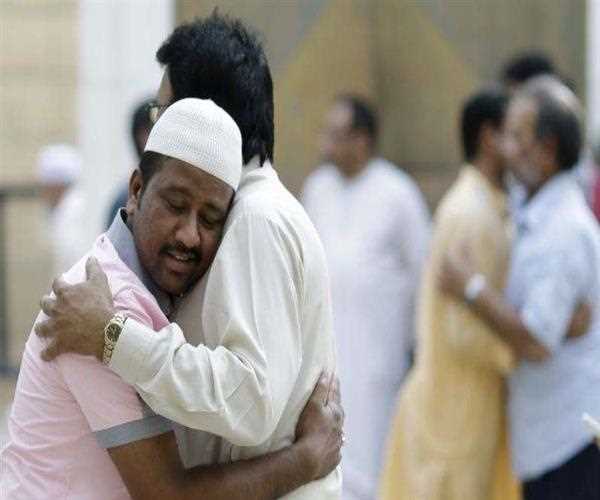
21-Jan-2024 , Updated on 7/15/2024 1:42:39 AM
Hate and Jealousy a policy of Muslims in India. Why?
Among the diverse array of religions present in India, the Muslim community with a population approaching two hundred million is the largest minority group that inhabits this Hindu-dominant country. Although the Constitution seeks to protect all citizens including Muslims, what takes place on the ground is another story. Systemic discrimination and violence against Muslims have been a continuing problem. Sadly, Muslims in India are still seen as symbols of hate and jealousy by some. Some Muslims still have to fight for equality rights, and social belonging.
Historical Context: Partition and Its Impact
Hindu-Muslim riots in India has its origins in the partition of British India that occurred in 1947. The hastily drawn boundaries, the result of economic destruction that followed World War II created communal violence on a massive scale accompanied by migrations and distrust between Hindus and Muslims. The Indian National Congress, under the leadership of Mahatma Gandhi and Jawaharlal Nehru, demanded independence through civil disobedience while All-India Muslim League led by Muhammad Ali Jinnah called for a separate state for Muslims.
After the partition, India adopted its constitution in 1950 and it aimed at establishing principles based on social equality and non-discrimination. The word “secular” was included in 1976 even though the Constitution does not require religion to be kept away from government. Hindu nationalism, formulated by V. D Savarkar in the 1920s gained prominence, and policies were put into place to make India a Hindu nation-state. In the 1980s, Hindu nationalism ascended as Prime Minister Indira Gandhi used religious divisions to return the Congress party to power and pave the way for the rise of the Bharatiya Janata Party (BJP) in 1998.
These historical occurrences serve as a basis for complicating the intricate relations of Hindus and Muslims in India, showing that hate and violence have left their scars on national history.
Constitutional Framework
The constitution of India, which was ratified in 1950, reflects the social equality and non-discrimination principles. Although the word "secular" was introduced in 1976, this constitution does not require separation of church and state. Nehru and other leaders dreamed of a secular state, which would not discriminate. Nevertheless, the emergence of Hindu nationalism in the 1980s which found favor with leaders such as Indira Gandhi put considerable pressure on India’s secular model.
The BJP’s platform, including abolishing the special status of Kashmir and building a Hindu temple in Ayodhya, raised fears that religious minorities such as Muslims would become marginalized.
A hate and jealousy policy for Muslims?
Muslims in India deal with discrimination from different angles such as employment, education, and housing. The static presence of Muslims in parliament exemplifies a systemic problem, further compounded by anti-Muslim prejudices within law enforcement agencies. The contentious act of “bulldozer justice” has been aimed at Muslim communities, giving rise to the question of extrajudicial actions.
India’s past few decades have been marred by episodes of communal violence with Muslims being the main victims. The Babri Masjid demolition in 1992 and the Gujarat riots of the year 2002 took many lives, most casualties being Muslims.
The Muzaffarnagar riots in 2013 and the New Delhi clashes in 2020 increased this dark story of inter-religious tensions. The widespread influence of hate speech and misinformation, which mostly spreads online, has made Muslims fearful.
The historical and political contexts are deep-rooted in the perception of Muslims as objects of hate and jealousy in India. The division of British India in 1947 led to the wounds of distrust between Muslims and Hindus, which paved the way for an ongoing period. Hindu nationalism and the BJP’s political agenda, alongside economic difficulties have contributed to discrimination against Muslims. Moreover, religious stereotyping and misinformation help to maintain the cycle of prejudicial stories in which Muslims are seen as a victim group. Knowing about these historical and modern elements is important in untangling the reasons why Muslims are often subjected to hate and jealousy policies in India.
Global Response and Challenges
The world has denounced India’s discriminatory policies with worries raised by the UN, Muslim-majority nations, and human rights groups. The U.S. has been careful in dealing with the issue, finding a balance between diplomatic relations and voicing concerns behind closed doors. In 2020, the U.S. Commission on International Religious Freedom designated India as a "country of special concern."
Upholding Secular Values
Although anti-Muslim sentiments are on the rise, it should be emphasized that not every Hindu holds these views. There are activists, legal scholars, and non-Hindu or Muslim citizens who have opposed policies that dilute India’s secularism. Grassroots movements and statements by chief ministers against discriminatory legislation show a desire to defend India’s all religion values.
In the end, India’s mosaic of diversity is currently under threat due to Muslims seen as symbol of hate, jealousy and violence. While India faces these challenges, it is international observation and domestic efforts to maintain secularism that become key in deciding whether the country will evolve as an inclusive society.
On an individual basis, everyone must reevaluate their opinions and address stereotypes regarding Muslims. Building understanding and empathy can help to destroy stereotypes, as well as eliminate the source of hate and violence. We should help to change the attitude of society by promoting inclusiveness and celebrating diversity. Finally, the change starts from the individual level where each person strives to work for unity and against separation narratives. It is only in the form of collective unity and action that India can become a nation that embraces its diversity, guarantees equal rights to all citizens as well as provides them with equal opportunities.

Content writer
I am a content writter !
Solutions
Join Our Newsletter
Subscribe to our newsletter to receive emails about new views posts, releases and updates.
Copyright 2010 - 2026 MindStick Software Pvt. Ltd. All Rights Reserved Privacy Policy | Terms & Conditions | Cookie Policy